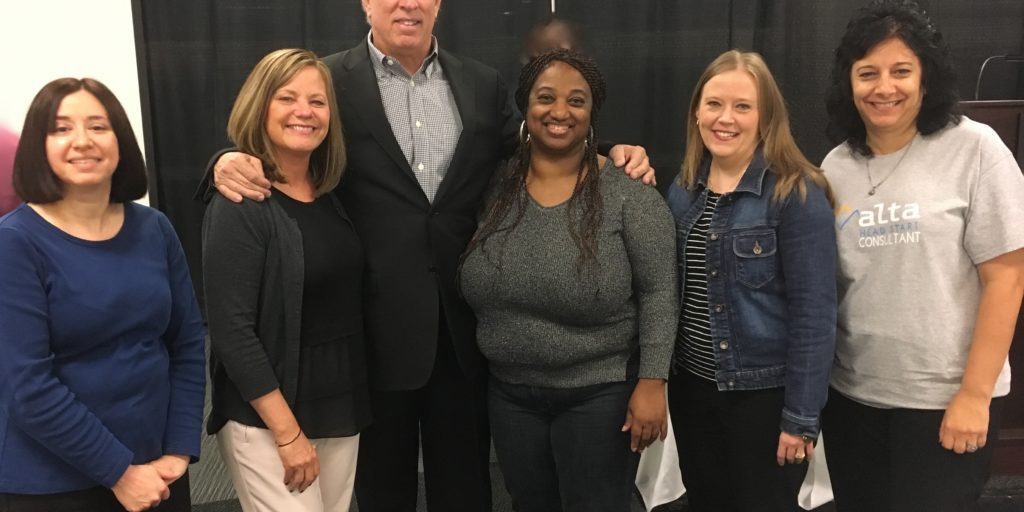All Alta Employees Have a Role in Dealing with Trauma in Children
The most comprehensive Trauma Care in the Mahoning Valley is found at Alta Behavioral Healthcare. And that care encompasses more than the dedicated Trauma-Focused Therapy offered by Alta.
In fact, every employee at Alta has a role in ensuring that the experiences of children in the agency’s Trauma programs will be positive and that their outcomes will be as successful as possible.
WHAT IS TRAUMA?
While most might be able to provide a general definition of the word “trauma,” the term is used in a more specific way by mental health professionals.
According to the Substance Abuse and Mental Health Services Administration (SAMHSA), trauma results from an event, series of events, or set of circumstances that is experienced by an individual as physically or emotionally harmful or life-threatening — and that has lasting adverse effects on the individual’s functioning and mental, physical, social, emotional or spiritual well-being.
In particular, trauma can impact the educational and developmental processes of children. Early identification and intervention has the most positive impact on individuals in helping them heal and find success in overall functioning.
WHO WE HELP
Alta Behavioral Healthcare provides services to children who are dealing with trauma resulting from events such as death, loss, abuse, neglect, domestic violence in the home, substance abuse issues and more. Trauma interventions may include individual and family therapy. We enroll approximately 50 children annually in the trauma department.
In recent years, mental health professionals have gained an increased understanding of trauma and its effect on how kids see themselves and their lives. Trauma may manifest itself in children’s educational experiences, behavioral problems and low trust levels, as well as specific conditions such as ADHD.
It has become clear that early intervention can make a significant impact on the quality of a child’s life for decades to come. By contrast, failing to address issues caused by trauma can lead to a lifetime of difficulties. Put another way, “The longer you ignore what’s truly bothering you, the deeper the wound becomes.”
HOW WE HELP
Alta is at the forefront of the latest advances in Trauma Therapy. Six specially trained Trauma therapists are on staff, and we provide several different types of therapy.
That help goes beyond therapy in the office. We have expanded our offerings at Alta to take in a Trauma-Informed Care approach that involves every Alta employee who comes into contact with a child or family who is part of our program.
ALTA’S TRAUMA-INFORMED CARE PROGRAM
We’re proud to announce that Meg Harris, LPC, Community Support and Trauma Supervisor for Alta, has been certified to train others in this Trauma-Informed Care approach.
Ms. Harris, a nationally certified Trauma therapist, gained her Trauma-Informed Care certification by attending a two-day training session in September at Heartland State Psychiatric Hospital. The training was conducted under the auspices of Ohio Mental Health and Addiction Services and the Ohio Developmental Disabilities Board.
Trauma-Informed Care is a philosophy of care that is designed to change the way an organization interacts with its consumers, its staff and its governing bodies. Specific to organizations such as Alta, it emphasizes the entire environment a child suffering from trauma will experience when coming in for treatment.
Ms. Harris has trained all Alta personnel in techniques that emphasize compassion to any child that comes to Alta for trauma therapy. This includes office workers, maintenance personnel, and anyone else a child might encounter in the course of a visit. The staff will be trained to show empathy towards these children, and to carefully consider any sensitivities this child might have — for example, to loud speech or noises, sudden movements, etc. Fostering kindness, patience and understanding is an important part of this training.
In addition to Alta Staff, Ms. Harris is certified to train other community organizations, businesses and/or schools in Trauma Informed Care and has worked with several in our area. This training assists organizations in understanding the impact of trauma on consumers and how the organization can improve its services to address the people coming in the door. She can administer Trauma-Informed Care organizational surveys and glean pertinent information to suggest areas of improvement.
Other specific goals of Trauma-Informed Care training include:
- creating safety in the environment and in employees’ interactions with others
- maximizing opportunities for the child to exercise choice and control
- fostering connections by providing opportunities for people to interact with one another
- building opportunities for children and adults to give feedback about their thoughts and feelings, leading to self-reflection and managing of emotions
This philosophy has also been carried out within the environment of Alta Behavioral Healthcare’s facility on Belmont Avenue in Youngstown. In the recent past, Alta’s lobby underwent a significant makeover to give it a more child-friendly and welcoming atmosphere. Books and toys are now available to give children something positive to focus on while they wait for their appointment.
Trauma-Informed Care promotes treating people in such a way that they want to continue to do business with you. TIC is about being sensitive to the needs of others, respecting the process of change, and empowering others to be successful in daily living.
Photo: Members of Alta’s Trauma Team and Early Childhood Team with Dr. Bruce Perry (presenter) at the Spire Institute in Geneva, Ohio. L-R: Rochelle Rulli-Perrotta, Meg Harris, Dr. Perry, Shonda Layton, Kristen Hartz-McCleery, Stacey Jickess-Roberts.


